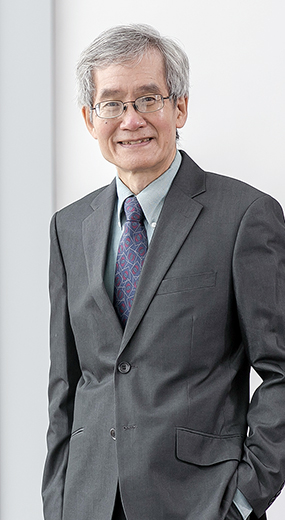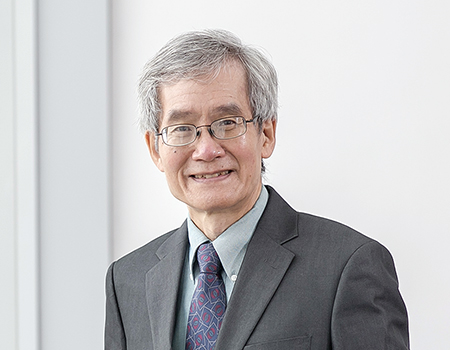

Prof. LUK Kam-Biu
陸錦標教授
Chair Professor of Physics, HKUST
Prof. LUK Kam-Biu
陸錦標教授
Chair Professor of Physics, HKUST
Research Areas:
Particle Physics, Neutrino Oscillation, and Charge-Parity (CP) Violation
Prof. Luk Kam-Biu received his BS in Physics from the University of Hong Kong in 1976 and PhD from Rutgers University in 1983. He has been a faculty member of the University of California, Berkeley since 1989 and is currently Distinguished Professor of Physics. He was also a senior faculty member and is now an affiliate in the Physics Division of the Lawrence Berkeley National Laboratory.
Prof. Luk has conducted research in neutrino oscillation and CP violations. He is the co-leader of the Daya Bay Reactor Neutrino Experiment, assembling a team of multinational researchers from US, Mainland China, Hong Kong, Russia, Taiwan and the Czech Republic. He and his collaborator, Prof. Yifang Wang (Institute of High Energy Physics at Beijing), were awarded the 2014 W.K.H. Panofsky Prize in Experimental Particle Physics from the American Physical Society "for their leadership of the Daya Bay experiment, which produced the first definitive measurement of θ13 angle of the neutrino mixing matrix". The Daya Bay experiment led by Prof. Luk and Prof. Wang has also been awarded the 2016 Breakthrough Prize in Fundamental Physics together with four other experiments in recognition for their work in investigating neutrino oscillation. In 2019, both Professors were recipients of the Future Science Prize in Physical Sciences for the experimental discovery of a third pattern of neutrino oscillations.
Prof. Luk was elected a Member of the American Academy of Arts and Sciences in 2019. He is also a Fellow of the American Physical Society and the Divisional Coordinator of High-energy Physics of the International Organization of Chinese Physicists and Astronomers.


